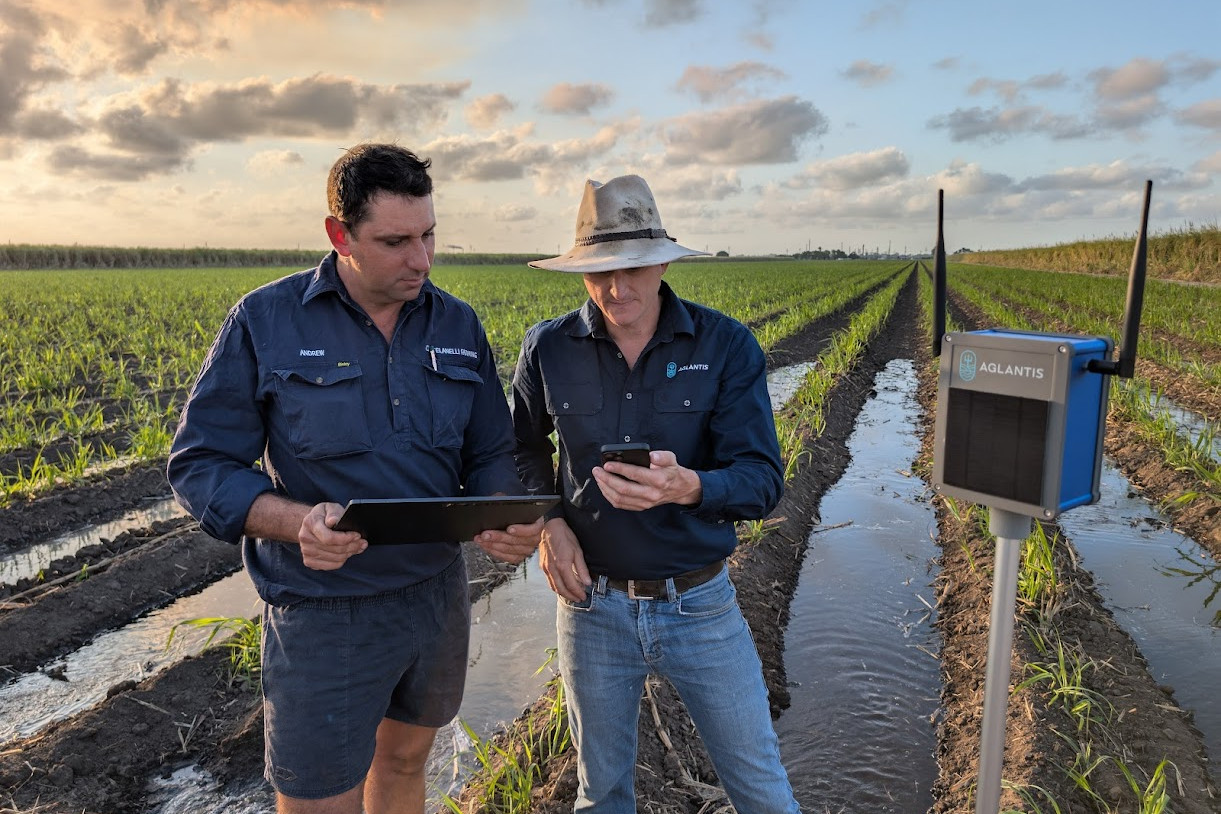On The Land
16 January, 2025
AI irrigation system heralds new era
A SMART irrigation system powered by artificial intelligence will tell sugarcane farmers when and where to water their crops in an advance that could one day revolutionise agriculture – and help preserve the health of the Great Barrier Reef.

Developed by Victoria’s La Trobe University for Far North Queensland ag-tech company Aglantis, the intelligent irrigation system uses the Internet of Things to automate water pump management and monitor sunlight, temperature and humidity levels without human interaction.
The system was initially conceived as a project to improve land management and prevent fertiliser run-off from farms into the Great Barrier Reef, but with new technology making smart irrigation more affordable, Aglantis managing director Luke Malan said the potential of the product was almost limitless.
In addition to saving water, future AI additions could teach the system how to conserve energy, responding to solar or energy tariffs. It could also examine soil profiles and make intelligent choices around crop selection and yields.
“It essentially takes the guesswork out of farming,” Luke said.
“With growing pressures on profitability, it’s more imperative to know what you’re doing and how you can do it better. This flips conventional thinking on its head and opens the doorway to new possibilities.”
Professor Wei Xiang, Cisco Research Chair and director of La Trobe University’s Cisco Centre for AI and the Internet of Things (IoT), said the smart irrigation system was the centre’s first commercial product and showed how industry could drive research to tangible and groundbreaking results.
La Trobe is already working with the Australian Institute of Marine Science (AIMS), creating the world’s first AI-powered three-dimensional digital twin of the Great Barrier Reef to monitor its health.
The new smart irrigation system – developed in a one-metre plastic tub housed in the Digital Innovation Hub at La Trobe’s Melbourne campus – further enhances the University’s reputation in the AI research space.
The university recently announced its bold ambition to transform research, education, student support and business operations by applying an “AI-first” approach.
“Now we’ve proven the technology, the next step is to add additional features to improve productivity and crop yields through leveraging cutting-edge AI technology,” Professor Xiang said.
“This will make farming on the whole more sustainable.”
IoT researchers Kamyar Karimi and Aravindan Madasamy, who developed the system for La Trobe under the supervision of Professor Xiang, said it would reduce labour costs, increase water efficiency and allow more precision in farm decision-making.
Ultimately, the system design could include intelligent sequencing to determine the perfect order of irrigation across different farm sections, predictive maintenance and continuous learning from historical data, seasonal patterns and crop responses.
“This technology represents a major shift towards data-driven, sustainable agriculture where AI and IoT optimise every drop of water for maximum farming efficiency,” Kamyar said.
Aravindan said the development of the smart irrigation system was a transformative step forward for farmers.
“By automating labour-intensive processes and putting control in the hands of advanced technology, farmers can save time, conserve resources and focus on other priorities without the stress of manual management,” he explained
The system features an ultra-compact design and precision valve control adjustable to any degree.
It is currently installed on an 80-hectare plot of Mark and Andrew Castelanelli’s farm in the Burdekin region near Townsville.
For Mark, who has been a sugarcane farmer for 55 years, smart irrigation heralds the future of farming.
Mark said while other smart systems had been on the market for a few years, this was the first that had been purpose-built for the sugarcane industry.
The veteran farmer previously racked up 15,000km each year driving to irrigate crops within a 6km radius on his farm.
Mark said using the smart system to irrigate with precision would save labour costs, increase efficiency and leave time to focus on other things.
“There’s endless opportunity and the power of computing is just getting smarter,” he said.


